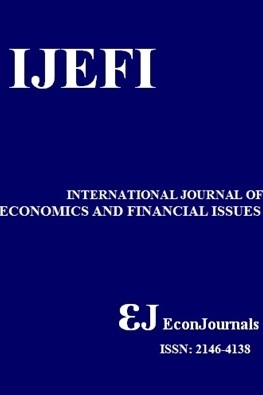A Nexus between Working Capital Management and Profitability: A Case Study of Pharmaceutical Sector in Pakistan
A Nexus between Working Capital Management and Profitability: A Case Study of Pharmaceutical Sector in Pakistan
- Başlangıç: 2011
- Yayıncı: İlhan ÖZTÜRK
The Origin of Oil Plunge in Political Economy and Aftermath on the Oil Price
Muhammad Suhaimi Mohd Yusof, Abd Rahim Romle, Mashitah Mohd Udin, Mohd Khirul Azwan Mohd Kamal, Muhammad Aqmarul Azri Azmi
Ibrahim Danjuma, Ibrahim Abdullateef Kola, Badiya Yusuf Magaji, Hauwa Modu Kumshe
Effects of Organizational Justice on Organizational Commitment
Asim Rahman, Naveed Shahzad, Kiran Mustafa, Muhammad Fayaz Khan, Faizan Qurashi
Default Prediction in Pakistan using Financial Ratios and Sector Level Variables
Suresh Ramakrishnan, Agha Amad Nabi, Melati Ahmad Anuar
The Level of Understanding and Strategies to Enhance Financial Literacy among Malaysian
What Does Matter? Liquidity or Profitability: A Case of Sugar Industry in Pakistan
Muhammad Zulqarnain Safdar, Muhammad Zahid Awan, Zeeshan Ahmed, Muhammad Imran Qureshi, Tafakhar Hasnain
Entrepreneurship and Business Ethics: Implications on Corporate Performance
Mercy Ejovwokeoghene OGBARİ, Adunola Oluremi OKE, Adeyemo A. IBUKUNOLUWA, Musibau Akintunde Ajagbe, Andrew Cat Ologbo
Financial Theories with a Focus on Corporate Cash Holding Behavior: A Comprehensive Review
Muhammad Sohail Tahir, Mohd Norfian Alifiah, Muhammad Usman Arshad, Faiza Saleem
Zeeshan AHMED, Muhammad Zahid Awan, Muhammad Zulqarnain Safdar, Tafakhar Hasnain, Muhammad Kamran
